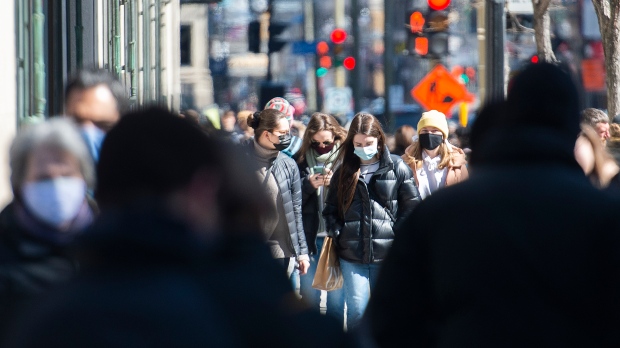Several provinces were imposing new public health restrictions to curb the spread of COVID-19 on Monday, as authorities across the country continued to struggle against a third wave of the disease that is claiming lives and straining intensive care capacity.
Nova Scotia reported a single-day record for new COVID-19 cases for the second day in a row on Monday, with 66 new infections.
Premier Iain Rankin said Sunday his province was at “a very serious crossroads” in its fight against COVID-19, as he tightened rules for travel and gatherings and doubled fines for those who violate public health orders.
In Alberta, councillors for the Wood Buffalo Regional Municipality voted on Sunday to declare a state of local emergency to curb rising cases of COVID-19. The measure, which has yet to be officially instated, will support future council actions that “could include enhanced measures to curb the COVID-19 emergency within the region,” the council said in a statement.
Two school divisions in Fort McMurray, part of the Wood Buffalo region, announced their schools were closing to in-person learning until May 10.
Manitoba is expected to announce new restrictions later Monday, while Toronto is set to say which workplaces will close under new rules aimed at bringing COVID-19 outbreaks under control.
In Ontario, the death of a 13-year-old girl provided a reminder of the dangers of a pandemic that authorities say has increasingly impacted younger Canadians. Emily Viegas died of COVID-19 last Thursday after her father, an essential worker, tried to care for her in the family apartment in Brampton, west of Toronto.
Politicians including Premier Doug Ford expressed their condolences to the family, while critics accused the provincial government of failing to protect the hard-hit Brampton area, which is home to many large workplaces and essential workers.
While Ontario reported more than 3,500 new cases and 24 more deaths, there was reason for cautious optimism in Quebec.
The province reported fewer than 1,000 new cases for the first time in April, even as Health Minister Christian Dube expressed concern over a slight rise in hospital numbers and urged Quebecers not to become complacent.
Several provinces were also expanding their vaccination programs to target populations perceived to be most at risk.
Alberta said it would announce plans Monday to vaccinate meat-plant workers, while Manitoba said adults of all ages in the northern health region and in Winnipeg’s Seven Oaks West neighbourhood can now get a shot.
Ontario, meanwhile, said it was working on a pilot project to allow some pharmacies to administer the Pfizer-BioNTech COVID-19 vaccine, as supplies of the Oxford-AstraZeneca shot run low and future deliveries remain uncertain.
































